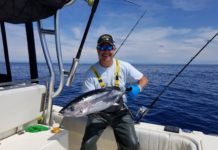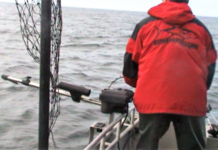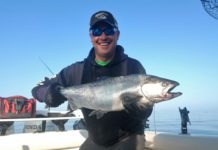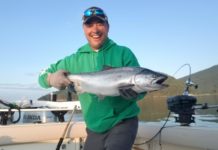
Many deep-sea organisms, such as this escape swimmer Benthothuria, lack lungs or gas-filled spaces that make them more susceptible to the intense pressures of the deep ocean. Image courtesy of the NOAA Okeanos Explorer Program.
Did You Know?
Instruments put into the ocean must be protected from seawater under great pressure. Humans can seal themselves in submersibles that keep the internal pressure the same as on land so that they may go very deep and return to the surface without breathing air at increased pressures. When conditions are too dangerous for even manned submersibles, remotely operated vehicles allow us to explore the otherwise inaccessible.
On land, we experience an internal pressure of one atmosphere (atm). As organisms with gas-filled spaces upon which we depend—lungs—we tend to focus on pressure at great ocean depths as a big deal…and with good reason. With each 10 meters of seawater, another atmosphere of pressure is added. So, for example, at 100 meters, you would experience one atm of air pressure and 10 atm of water pressure, for a total of 11 atm.
Travel to 1,000 meters below the ocean’s surface and most organisms with gas-filled spaces (like us) would be crushed by the pressures that other deep-sea life experience.
At deep-sea depths, the pressure is unimaginable, yet many creatures have no problem living there. This is because most things living in the deep ocean are largely water and water is incompressible. Without gas-filled spaces like lungs or swim bladders, organisms in the great deep are less affected by pressure than we imagine. Some ocean species perform vertical migrations of 1,000 meters each day, experiencing a 100 atm range of pressures with no harmful effects.
Deep-sea pressures do affect chemical reaction rates somewhat, speeding up reactions. Organisms adapted to these pressures may experience metabolic problems when brought to the surface for study.
For More Information:
Ocean Zones (pdf, 434 kb), Learning Science through Ocean Exploration
Now, Take a Deep Breath (pdf, 548 kb), Exploring the Submerged New World 2009
Sign up for the Ocean Explorer E-mail Update List.














